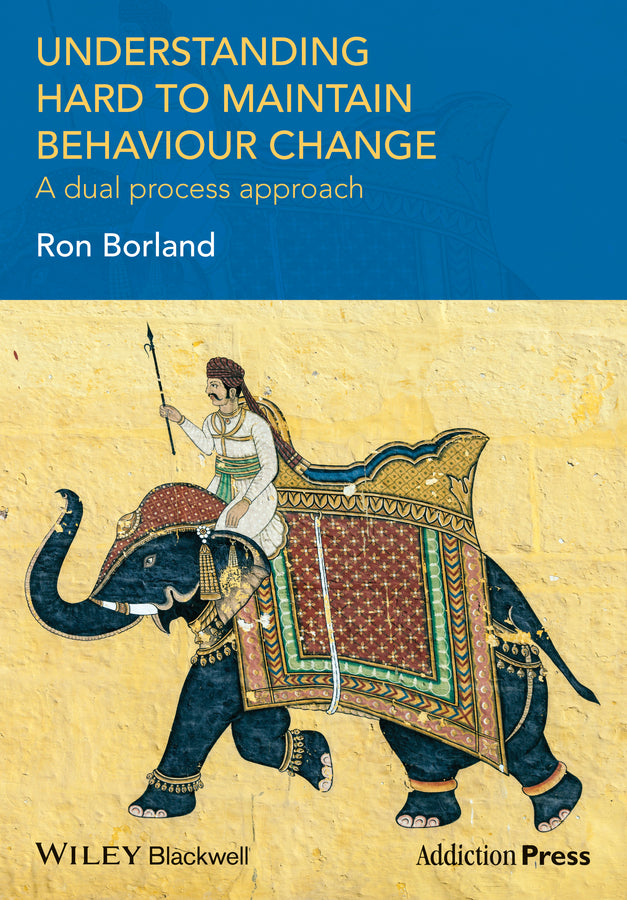Description
Condition: BRAND NEW
ISBN: 9781118572931
Year: 2014
Publisher: John Wiley & Sons (UK)
Pages: 256
Description:
The book presents an integrative theory of hard-to-maintain
behaviours, that includes hard-to-reduce or eliminate behaviours
like smoking and other drug use, overconsumption of food or unsafe
sex, and hard-to-sustain behaviours like exercise and sun-safe
behaviours. Most of the examples come from the author?s
work on tobacco smoking, but it is relevant to anyone who is
concerned to understand why some forms of desirable behaviour are
so hard to achieve, and to those trying to help people change. It
also has important implications for public health campaigns and for
the development of policies to nudge behaviour in desirable
ways.
The book provides readers with frameworks to:
- Determine whether a ?hard to maintain? behaviour is a
result of the skills needed to perform it, its reinforcement
history, the way the person thinks about it, the context, or some
combination of these.
- Better integrate cognitive and behavioural change strategies,
including emergent strategies related to mindfulness and
acceptance, plus novel ways of retraining operational
processes.
- Understand the different nature of challenges for behaviours
where multiple attempts are typically required before the desired
behaviour pattern is sustained.
- Better understand the role of feelings and emotions as influences
on behaviour.
- Understand the limits of environmental factors to determine
change.
- Understand the limits of self-control and will-power.
ISBN: 9781118572931
Year: 2014
Publisher: John Wiley & Sons (UK)
Pages: 256
Description:
The book presents an integrative theory of hard-to-maintain
behaviours, that includes hard-to-reduce or eliminate behaviours
like smoking and other drug use, overconsumption of food or unsafe
sex, and hard-to-sustain behaviours like exercise and sun-safe
behaviours. Most of the examples come from the author?s
work on tobacco smoking, but it is relevant to anyone who is
concerned to understand why some forms of desirable behaviour are
so hard to achieve, and to those trying to help people change. It
also has important implications for public health campaigns and for
the development of policies to nudge behaviour in desirable
ways.
The book provides readers with frameworks to:
- Determine whether a ?hard to maintain? behaviour is a
result of the skills needed to perform it, its reinforcement
history, the way the person thinks about it, the context, or some
combination of these.
- Better integrate cognitive and behavioural change strategies,
including emergent strategies related to mindfulness and
acceptance, plus novel ways of retraining operational
processes.
- Understand the different nature of challenges for behaviours
where multiple attempts are typically required before the desired
behaviour pattern is sustained.
- Better understand the role of feelings and emotions as influences
on behaviour.
- Understand the limits of environmental factors to determine
change.
- Understand the limits of self-control and will-power.

